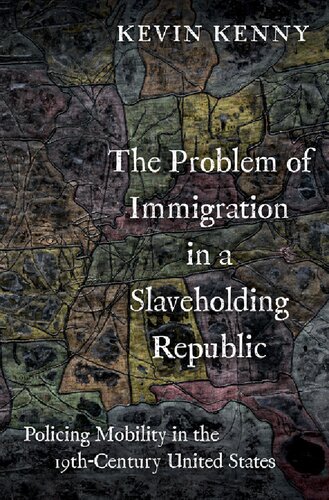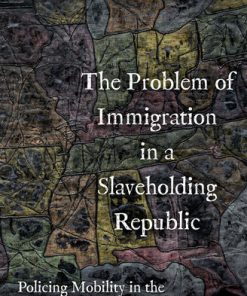The Problem of Immigration in a Slaveholding Republic: Policing Mobility in the Nineteenth-Century United States
$50.00 Original price was: $50.00.$25.00Current price is: $25.00.
The Problem of Immigration in a Slaveholding Republic: Policing Mobility in the Nineteenth-Century United States – Ebook Instant Download/Delivery ISBN(s): 9780197580080,0197580084,9780197580103, 0197580106
Product details:
- ISBN 10: 0197580106
- ISBN 13: 9780197580103
- Author: Kevin Kenny
Today the United States considers immigration a federal matter. Yet, despite America’s reputation as a “nation of immigrants,” the Constitution is silent on the admission, exclusion, and expulsion of foreigners. Before the Civil War, the federal government played virtually no role in regulating immigration, and states set their own terms for regulating the movement of immigrants, free blacks, and enslaved people. Insisting that it was their right and their obligation to protect the public health and safety, states passed their own laws prohibiting the arrival of foreign convicts, requiring shipmasters to post bonds or pay taxes for passengers who might become public charges, ordering the deportation of immigrant paupers, quarantining passengers who carried contagious diseases, excluding or expelling free blacks, and imprisoning black sailors. To the extent that these laws affected foreigners, they comprised the immigration policy of the United States.
Table contents:
Part One: Sovereign States
1. Foundations
2. Police Power and Commerce Power
3. The Threat to Slavery
4. The Boundaries of Political Community
Part Two: Immigration in the Age of Emancipation
5. The Antislavery Origins of Immigration Policy
6. Reconstruction
7. Immigration and National Sovereignty
People also search:
the problem of immigration in a slaveholding republic
impact of immigration in the u.s
what is the political impact of immigration
oppression of immigrants
7 of the biggest challenges immigrants face
You may also like…
Politics & Philosophy - Social Sciences
Sportswomen’s Apparel in the United States: Uniformly Discussed 1st Edition
History - American Studies
Politics & Philosophy - Social Sciences
Medicine - Others
Health Care in the United States 2nd Edition Howard P. Greenwald
Arts - History & Criticism
History - American Studies
History - World History
Uncategorized
Business of the Heart: Religion and Emotion in the Nineteenth Century 1st John Corrigan












